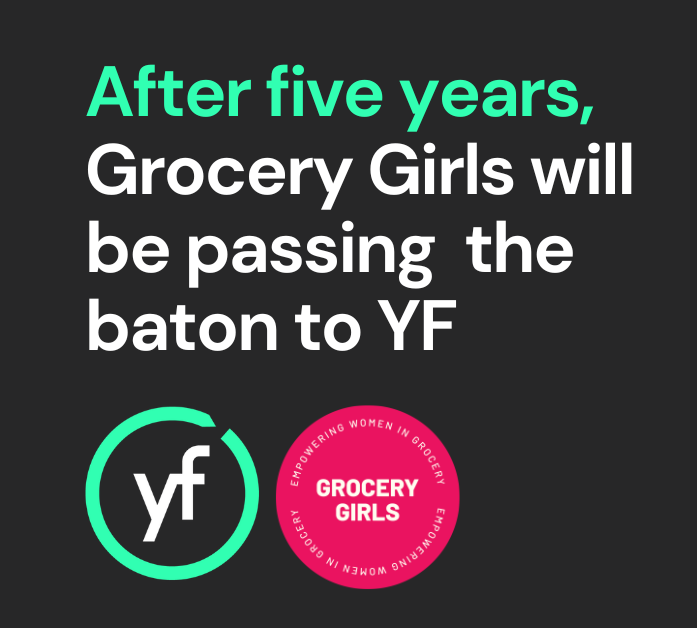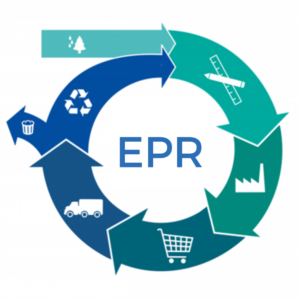
Subscribe to
YF mailing list
Subscribe today to keep informed of any important industry news and exclusive insights on how you can scale and strengthen your business.

From 2024, the burden for managing UK packaging waste is set to fall on producers’ shoulders.
Currently the cost of collecting, recycling and disposing of product-based packaging lies with the taxpayer. But from next year, as part of its Extended Producer Responsibility (EPR) policy, the government will make producers liable for funding this process, a change that is forecast to cost them around £1.7bn. Failure to comply could lead to fines or legal action.
The idea is that, by handing producers financial responsibility for a product’s packaging, they will be better incentivised to create circular economy models, where waste is recovered, recycled or regenerated in a closed loop, limiting the impact on the environment.
But though its intentions may be noble, the impact for small FMCG brands with limited resources may be significant, requiring investment in new processes, technologies, and personnel in order to comply.
The time to get prepared is running out too, with the requirement to start collecting data coming into force last month.
You will need to comply with EPR if:
You have an annual turnover of £1m+.
You were responsible for more than 25 tonnes of packaging in 2022.
You supply packaged goods to the UK market under your own brand, place goods into unbranded packaging, import products in packaging, or own an online marketplace.
Exactly what is required depends on the size of your business. For small organisations, there is a requirement to:
Record and report data on all empty packaging and packaged goods supplied or imported in the UK from either January or March 2023. If you do not have the right data from January, then figures collected from March to December will be calibrated to calculate a full year’s worth.
Create an account with the government by January 2024 in order to pay a charge to the environment regulator.
It is critical that if you are affected you begin careful record-keeping on packaging waste from now, in order to be able to accurately report your output to regulatory authorities and ensure calculations for your liability are correct.
As an evolving area of policy, it is also important that you monitor your compliance with emerging EPR regulations and respond quickly to any enforcement actions taken by regulatory authorities.
It may be best to appoint one member of the team to oversee these core tasks and to be accountable for remaining up to date on any changes to regulations.
Though bearing the brunt of the cost of packaging waste may feel daunting for a small FMCG brand, there are steps you can take to reduce the overall impact by proactively investing in new processes and technologies that are designed to limit waste.
There are lots of areas to explore here:
Product redesign
Consider redesigning products to reduce waste and improve recyclability by using sustainable packaging materials, simplifying designs and limit unnecessary packaging.
Waste reduction and resource efficiency
To minimise the amount of waste generated, small producers may want to explore the value in implementing waste reduction and resource efficiency measures across their supply chain. This may include identifying ways to reduce energy and water consumption, implementing recycling programmes and using more sustainable materials.
Collaborative approaches
To achieve meaningful waste reduction, SMEs may need to collaborate with other stakeholders in their value chain, such as suppliers, retailers or waste management companies, in order to develop shared sustainable practices. Consider proactively reaching out to key partners to start these discussions early and identify those areas which could represent low-hanging fruit.
With small teams and limited resources, wide-reaching legislation such as EPR can often be difficult for SMEs to get their hands around.
Our experienced Supply Chain Team can provide tailored advice on how to navigate the new regulations, and also identify processes and initiatives that will ensure you are both compliant and also working toward an overall reduction in packaging waste going forward.
If you would like to discuss how YF can help, reach out to our team today for an initial conversation
Would you like to be kept informed of any industry news, insights or updates about the YF Services? You can quickly subscribe to our newsletter here.
Subscribe to our mailing list to stay in touch with the latest news, insights and updates from YF.
Subscribe today to keep informed of any important industry news and exclusive insights on how you can scale and strengthen your business.
Our Preferred Suppliers are a selection of businesses that we have vetted and trust to recommend to our brands. We have negotiated discounts or deals with many of them.
Access to the list and discounts is a benefit to Community members only.
Not a member yet? Find out more here